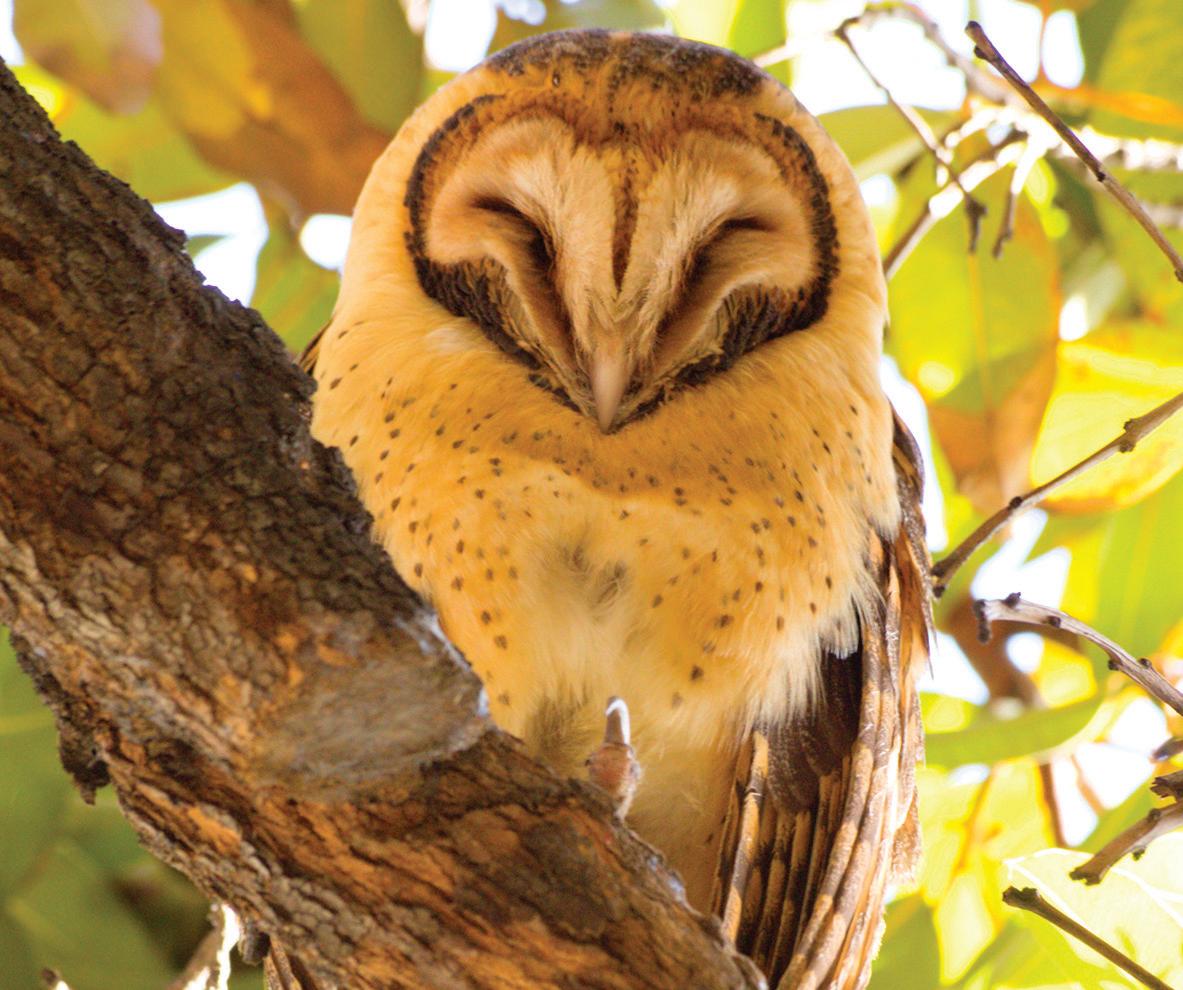
3 minute read
Let’s give a hoot for our raptors
By Emily Rice, Landcare Tasmania Volunteer
You are probably aware of just how effective rodenticides (rat poisons) are in keeping homes pest free, but did you know some of these poisons are working their way into the food chains of owls, eagles and other native wildlife?
Second-generation rodenticides have increased in popularity due to their ability to kill rodents in just one dose. However, these concentrated levels of poison can also work their way up the food chain when rats and mice are eaten by predators such as eagles, hawks, owls, Tasmanian devils, quolls and even pets. In a 2021 study almost three quarters of eagles examined had some level of rodenticide in their systems.
During the colder months rodents start looking for shelter, and you may find yourself with a few unwelcome guests in your home. So, if rodenticides are harming our wildlife, what other options do you have for pest control?
As always, prevention is better than cure. Avoid leaving food scraps and pet food in accessible areas, keep your garden free of fruit fallen from trees, and ensure your home is secure with no entry points for mice or rats – if your little finger can fit, so can a mouse!
If you feel poisons are necessary but wish to avoid second generation rodenticides, opt for first generation poisons with the active ingredients warfarin or coumatetralyl. While these poisons take multiple doses to kill rats, they have a lesser impact on the animals that prey on rats and mice.
If a poison contains dangerous chemicals such as bromadiolone, it is a legal requirement that it be labelled “POISON”. If its ingredients are less toxic, it will be labelled “CAUTION”. This distinction will help you identify which products to use. While no poison is always the best option, if it is needed, look for those with a “caution” label.
Make your house less friendly for rodents
• Tidy up garden waste.
• Pick up any fallen fruit.
• Ensure excess pet food isn’t accessible.
• Rodent-proof chook pens and aviaries.
• Replace rat-friendly palms with owl-friendly natives.
• Seal potential roof/wall cavity access points rodents might use.
• Immediately dispose of rodent carcasses to stop pets or wildlife eating them.
Reduce dependence on poison baits
• Consider other, non-poison pest control, like snap traps.
• Only put out baits when you need to.
• If you do need to use poison consider “natural” alternatives or first generation products.
• Natural alternatives usually use salt to dehydrate rodents until they die. These products have not been shown to impact native wildlife through secondary poisoning.
For more information visit the Landcare Tasmania website at landcaretas.org.au/rodenticides




